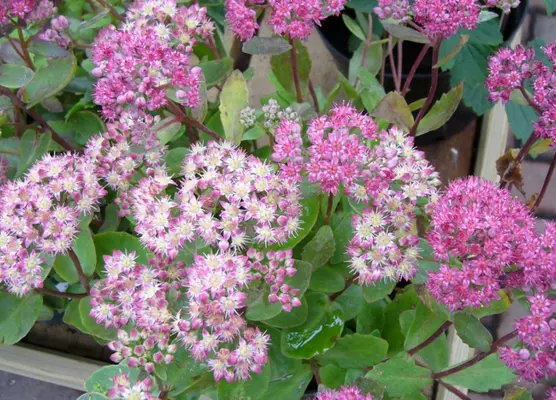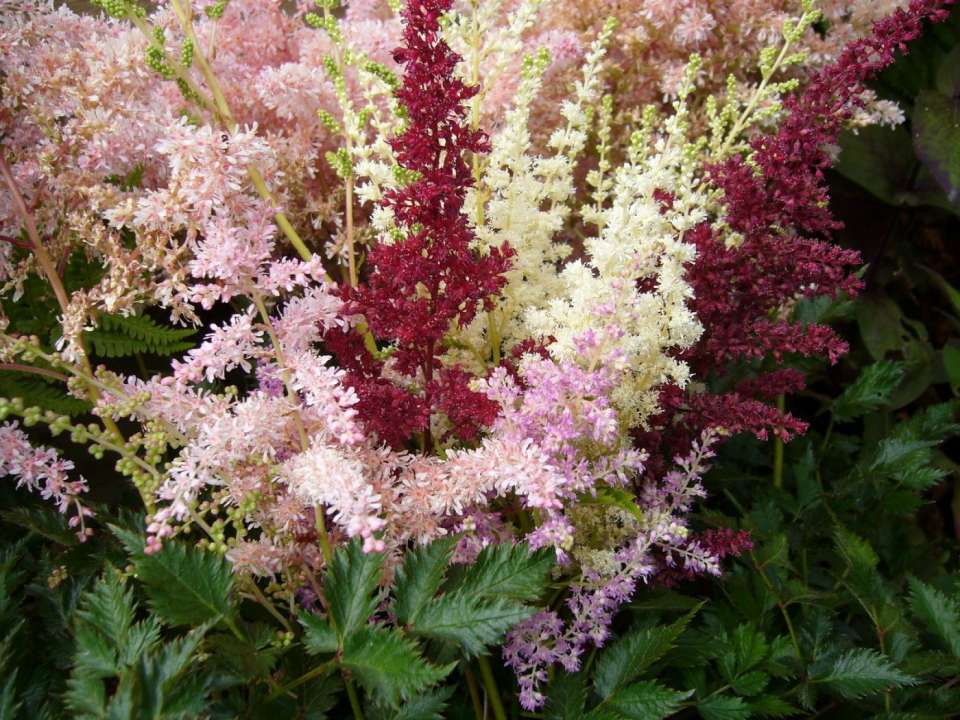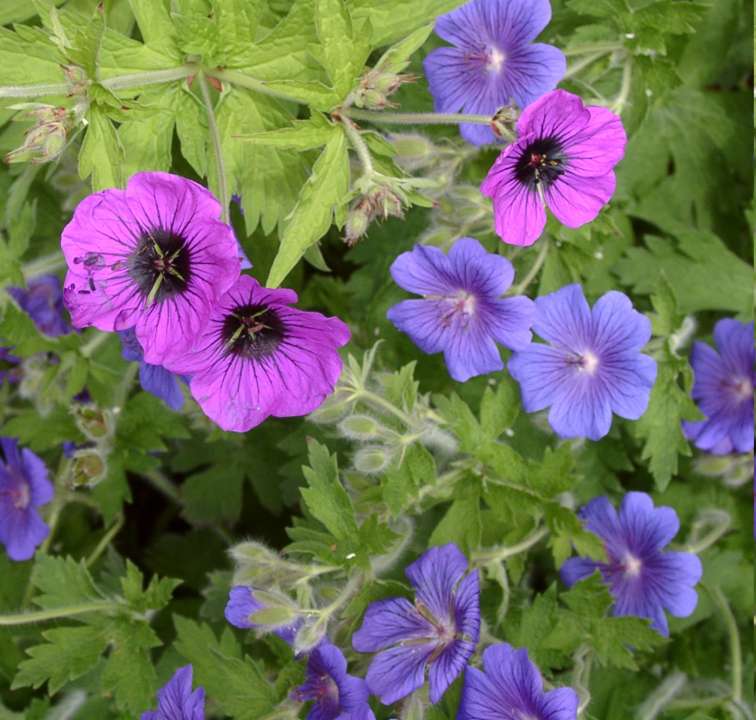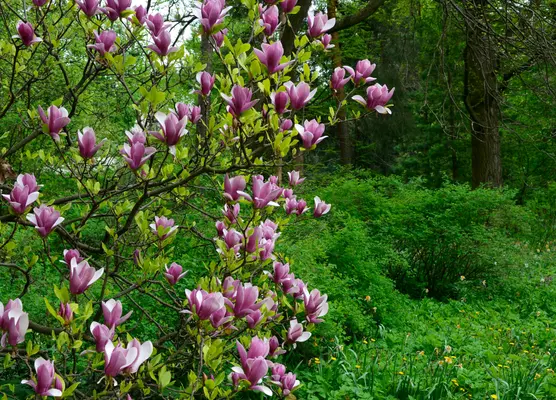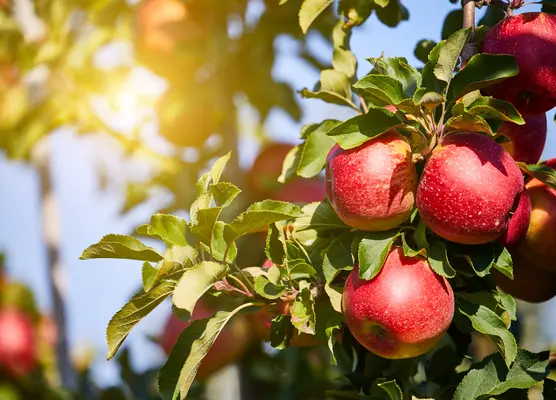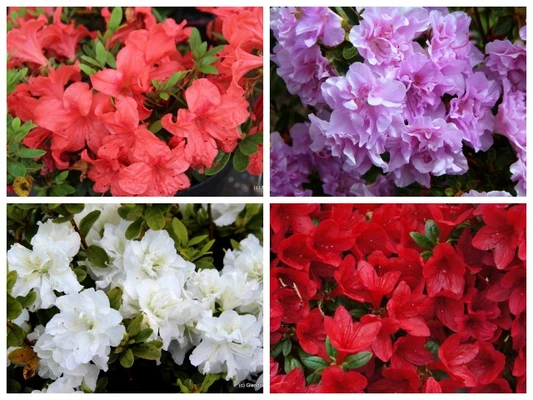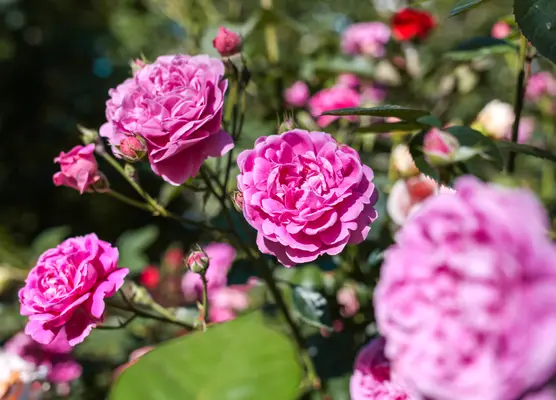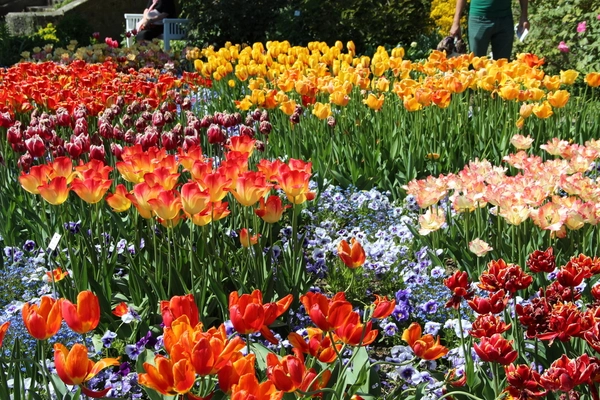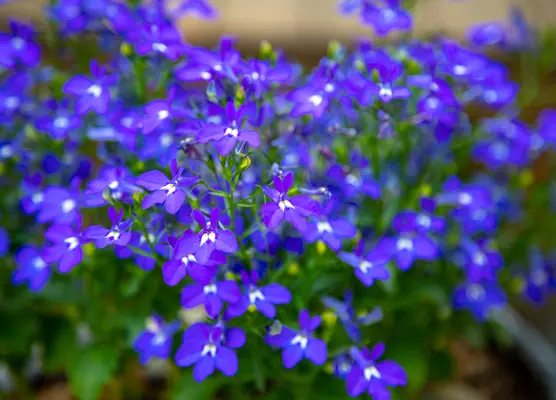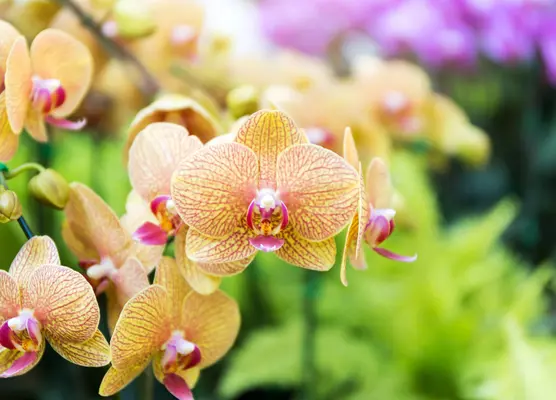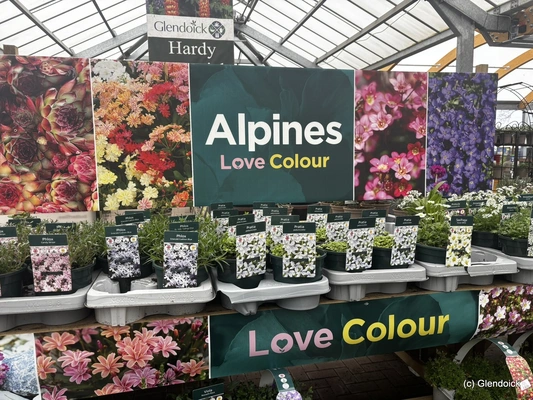Perennials/Herbaceous Plants
Perennials & Herbaceous. What are they?
- Perennials, also known as herbaceous perennials, are non-woody flowering plants
- They are the mainstay of garden borders.
- The smallest ones, known as alpines have their own page.
- Most are deciduous (they die back or lose their leaves in winter): examples include delphiniums, geraniums, hostas;
- A few are evergreen (they dont die back or lose all their leaves. Examples include Dianthus (carnations) and some Heucheras and ornamental grasses.
- Picking the right ones will give your garden interest all year round.
From Glendoick's 100 Best Plants Leaflet
Herbaceous/Perennials Flowers which come up every year but which mostly die back to the ground in winter. Those listed are hardy, easy to please and particularly good in Eastern Scotland. Many appreciate having their clumps divided up every few years in winter or early spring. Most of these do not require staking unless in a windy site.
Achillea (yarrow)
H4-5 Feathery foliage and showy summer flowers in many colours, made up of tiny florets. Full sun and well-drained soil, short-lived in heavy or clay soils.
Anemone japonica/hybrida/hupehensis (Japanese Anemone)
H5 1m. Wonderful late summer to autumn colour with pink or white flowers. Needs moist soils in sun or part shade and resents being disturbed: will spread gradually.
Aquilegia (Columbine)
H5 30cm-1m. Tough and easy late spring-early summer flowering perennials which seed easily. Flowers, in almost any shade, both single and double, are characterized by the long spurs on them. Not particular as to soil conditions.
Aster (Michaelmas Daisy)
H5 30cm-1m. $ These tough and reliable plants provide some of the best late colour for the Scottish garden. Daisy-like flowers purple, reddish, pink or white. Best in full sun.
Astilbe (Goat’s Beard)
H5 30cm-1m. Plume-like spikes of red, pink, purple or white flowers in midsummer. Finely cut attractive fern-like foliage. Moist soil, usually best in full sun in E. Scotland. Many named clones: ‘Fanal’ 60cm perhaps the best red, ‘Sprite’ 30cm, pale pink.
Astrantia major
H5 60cm. $ Star-like papery white, pink or red bracts in summer, often flowers for months. Toothed leaves. Will seed itself naturally. An excellent plant for flower arranging. Sunny borders or part shade in good soil.
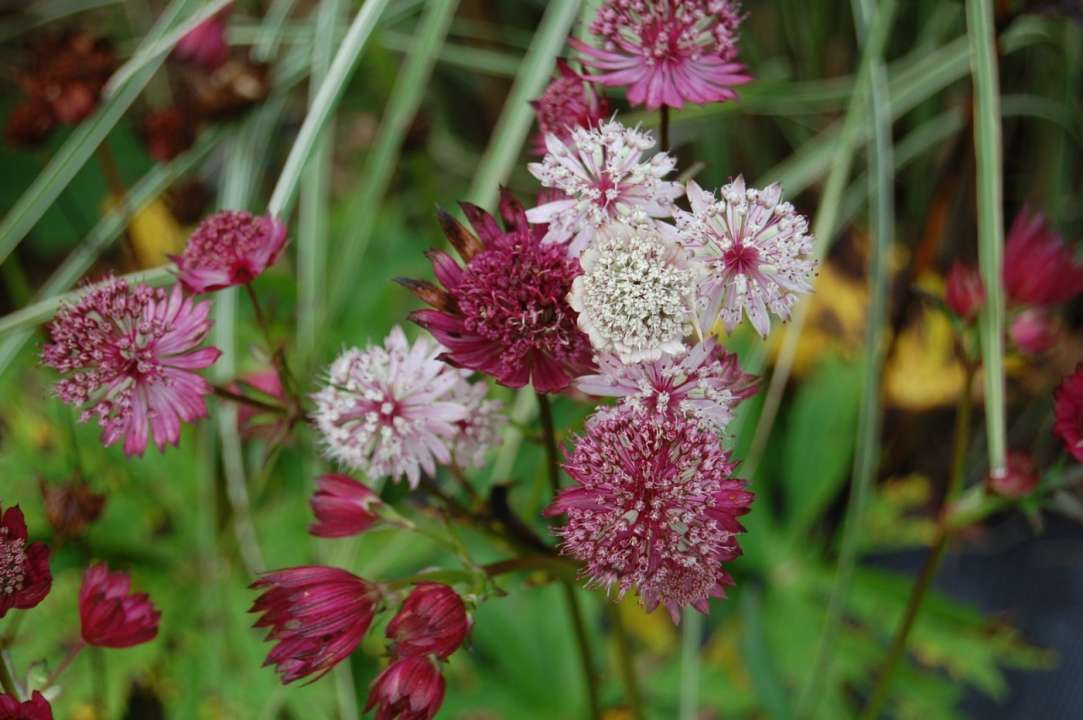
Bergenia (Elephant’s Ears)
H5 30cm. A fine evergreen spreader which covers the soil, suppressing weeds. Reddish, pink or white flowers in spring. Some have good reddish winter leaf colour.
Campanula (Bellflower)
H5 1-1.2m. Clump-forming plants with bell-shaped flowers. Well-drained soil. C. persicifolia 1m. blue, violet-blue or white flowers on slender spikes in summer. C. lactiflora 1.2m +. Taller growing for back of border or light woodland. Purple, lavender or pink flowers in July-August. ‘Prichard’s var. deep lavender blue, ‘Loddon Anna’ soft pink. ‘Sarastro’ rich purple.
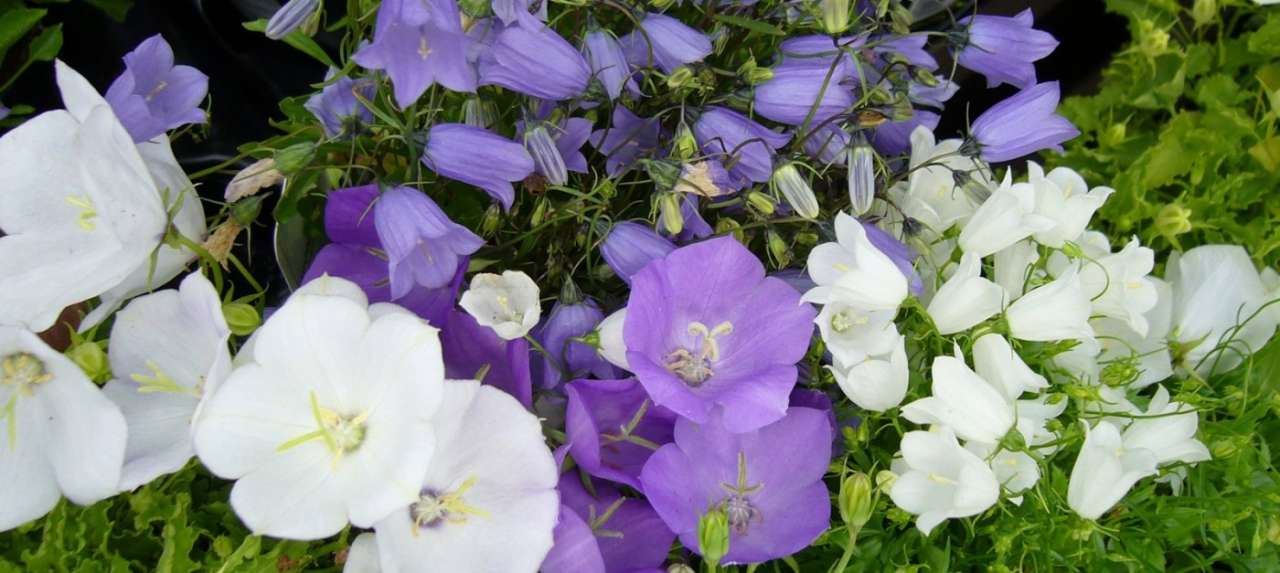
Crocosmia (Montbretia)
H5 60cm-1m. The best perennial for bright red or orange late summer colour. Sword-like leaves forming upright clumps. Rows of small tubular flowers in red, orange and yellow shades. Needs a well-drained sunny site. ‘Lucifer’ flame red.
Dicentra (Bleeding Heart)
H5 30-60cm. A spreading perennial with a long flowering season and very easy to please. Unusual pendent, heart-shaped flowers in white, purple, pink or reddish shades. Ferny foliage.
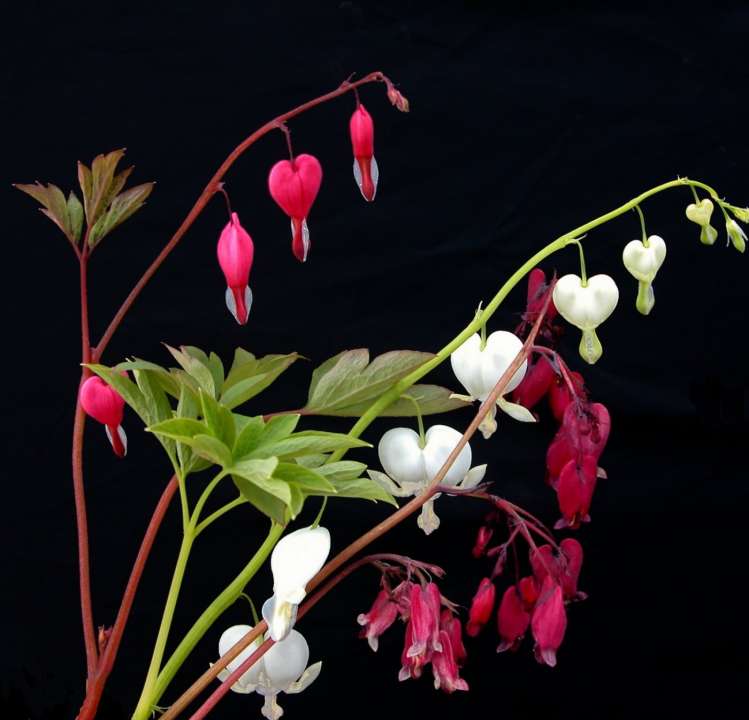
Euphorbia (Spurge)
H5 30cm-1.5m. Reddish to orange or greeny-yellow bracts are most attractive. Very popular tough plants for the border. Best in full sun in moist but well-drained soil. All have caustic sap in the stems so care is needed when cutting back. E. amygdaloides (Wood Spurge) A UK native with evergreen leaves and yellow bracts. There are several selected forms with purple leaves. E. griffithii ‘Fireglow’ 75cm A tall deciduous form with fine bright reddish bracts. E. wulfenii 1.5m+ evergreen, yellow.
Geranium
H5 to 1m. Purple, blue pink or white flowers. There are dozens of outstanding varieties to choose from suitable for many different conditions. The best have a very long flowering period: ‘Johnson’s Blue’ 30cm, lavender blue, all summer and fine foliage
G. macrorrhizum 25cm, magenta pink, very good in dry situations,
‘Rozanne’ 45cm, new, electric blue, all summer,
‘Wargrave Pink’ 30cm deep pink all summer.
Geum
H5 60cm. Really easy to grow and flowering for weeks and weeks, flowers red, orange or yellow on long stalks.
‘Lady Stratheden’ double yellow, ‘Mrs Bradshaw’ double red.
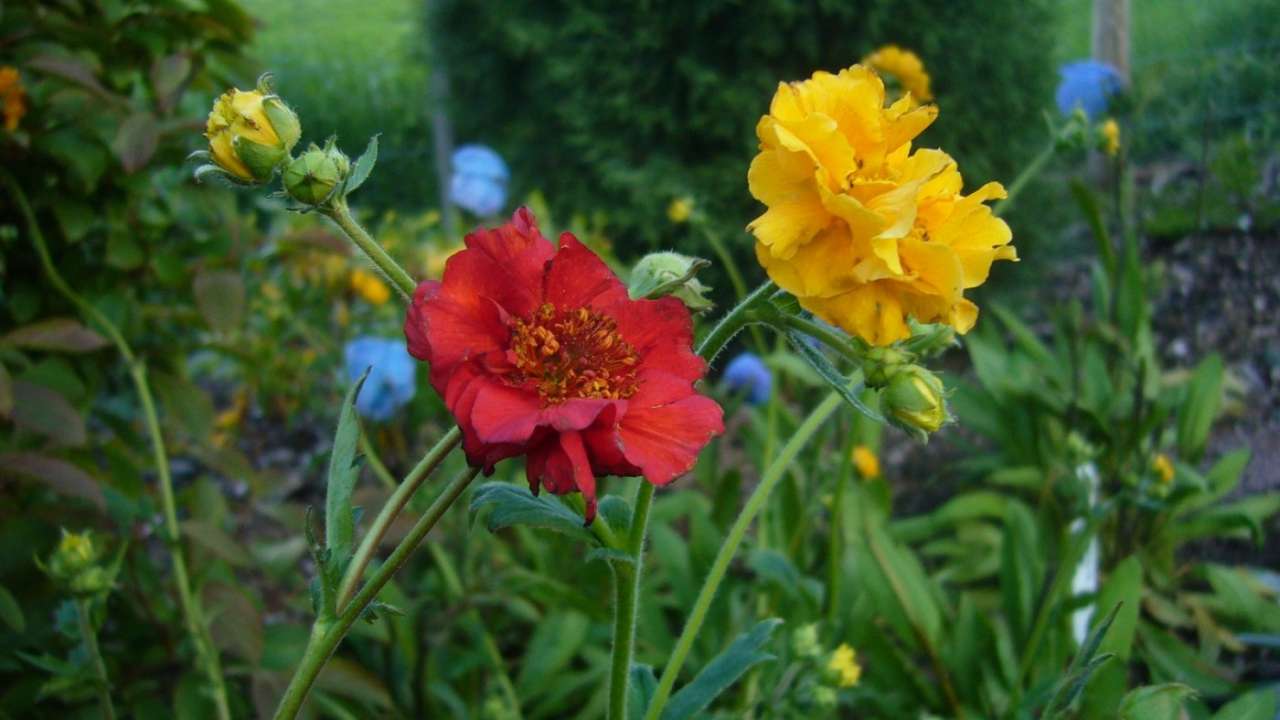
Grasses
Festuca and Carex H3-H5. These have become more and more popular in recent years. Most are best in full sun in Scotland, in well-drained soil. A few of the best are: Festuca glauca ‘Elijah Blue’, 20cm, vivid blue leaves, ‘Golden Toupee’, 20cm, bright yellow leaves in spring, Carex comans (sedge) 1m greenish white leaves, Carex ‘Evergold’ 30cm, cream and gold leaves.
Grasses Hakonechloa macra H4 40 x 60cm A wonderful slow-spreading deciduous Japanese grass with graceful, arching stems and bamboo-like leaves which colour in autumn. Great for containers or edging borders. There are variegated and green forms.
Grasses: Miscanthus sinensis H4-5 1-3m. Autumn and winter flowering tough grasses, white of pinkish plumes in late summer to winter. Cut back to the ground in February-March.
Halenium
H4-5 80cm-1.2m One of the best daisies for Scotland with orange-red to yellow flowers in late summer. Sunny, well-drained but not dry soils. Divide up congested clumps every few years.
Helleborus orientalis hybrids. H5 30-45cm $. Clump forming perennials, one of the best plants of all for winter colour, and ideal for planting under trees. Flowers vary from deep purple to pink and white and are often very attractively spotted.
Heuchera
H5 30-45cm Vogue plants for their wonderful marked and marbled foliage in many colours. Sprays of small red, pink or white flowers in early summer. Spreading slowly they can be divided every few years. Easy and hardy. Over 100 named forms: just go for the foliage effects you prefer . ‘Obsidian' dark purple foliage. ‘Lime Rickey’ yellow-green leaves.
Hosta
H5 15-45cm Very popular foliage plants, there are hundreds of named varieties to choose from: just select the foliage you prefer. Pale blue-violet or white flowers. Easy and hardy. Good for moist shady sites or in full sun, though yellow-leaved cultivars may burn. Hostas are prone to slug damage: blue forms of H. sieboldii are the most slug resistant.
Meconopsis
(Blue Poppy) H5 1-1.2m A favourite plants for Scotland. Moist acid soil required, in sun or light shade. Will form larger clumps from year to year which may need dividing. M. betonicifolia Sky-blue flowers in early summer. ‘Alba’, white ‘Hensol Violet’, violet-purple. M. ‘Lingholm’ (syn. M. sheldonii) H5 1-1.2m Larger flowered than the above often with more intense blue flowers. Divide clumps every few years. Infertile blue group largest flowers, many named forms, divisions.
Nepeta (catmint)
H5 45cm. $ Very easy, vigorous, spreading plants with lavender blue flowers all summer long. Well-drained soil in full sun. May need hard pruning to keep in bounds. Attractive to butterflies and bees.
Persicaria affinis (syn. Polygonum)
H5 10cm A vigorous, creeping or carpeting plant for the front of the border. Spikes of pink or reddish flowers all summer long and into autumn. ‘Donald Lowndes’, ‘Superba’ equally good.
Primula Candelabra types
H5 30-60cm. Available in a large range of colours and they will seed themselves regularly in moist soil. Very popular in drifts by ponds and streams. P. poissonii purple, P. japonica pink, red or white.
Rudbeckia ‘Goldsturm’
H4 60cm Unbeatable late summer colour with long lasting bright yellow daisies in August and September.
Sedum spectabile & S. spurium
H5 45cm. $ These wonderful late summer & autumn flowering perennials are a magnet for butterflies. Reddish, or white flowers above fleshy leaves. Some forms with red-purple leaves.

